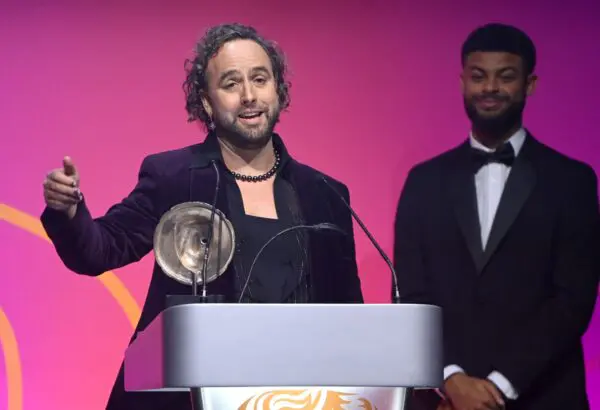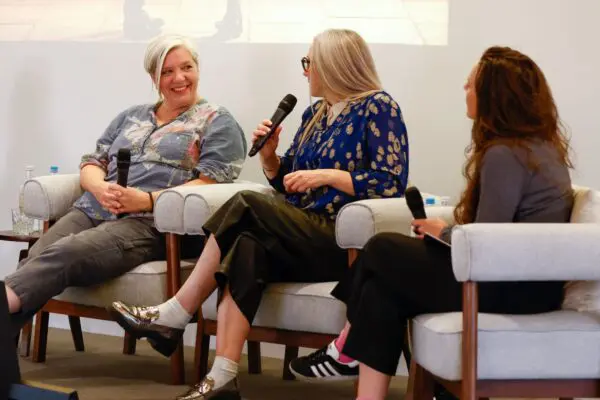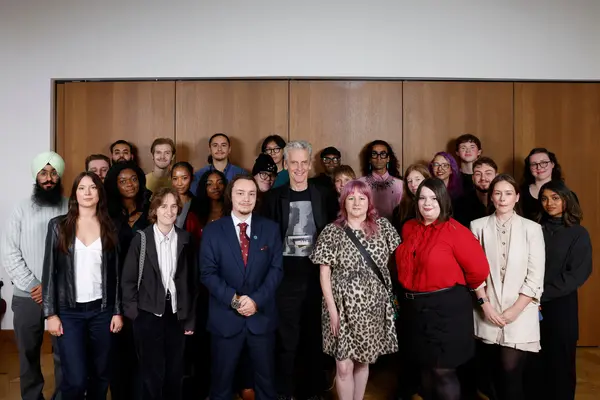London, 2 November, 2012: A new research report released today by the British Academy of Film and Television Arts (BAFTA) reveals that young people are needlessly being discouraged from pursuing a career in film, television or games – with talented young people from lower socio-economic backgrounds and women at particular risk of being lost to these industries.
The BAFTA Career Pathways Survey questioned 2,077 young people aged 16-24 and almost 200 BAFTA members about their career decision-making processes and influences.* The findings are published on the first anniversary of the BAFTA Guru learning channel, which provides filmed interviews, articles and podcasts with industry professionals to help young people and career starters gain more knowledge about their chosen craft area.
The report calls on careers advisors and the film, television and games industries to establish cross-industry working groups to tackle specific challenges around advice and resources, work experience, education and skills training, and diversity. The findings will be discussed at a summit hosted by BAFTA on Thursday 15 November where industry and careers experts will aim to identify practical solutions to the issue.
The film, television and games industries employ over 80,000 people in the UK and generate billions of pounds of revenue each year. Although there is significant competition for jobs in some areas, the report suggests that many potential recruits dismiss these sectors for reasons not based on their talent or aptitude.
Report reveals setbacks to accessing careers advice on film, television and games
Careers in film, television and games are popular first choices amongst young people, with over half (57%) of those surveyed at one time considering a career in one or more of these industries, and 25% currently in training, education or employment directly related to a career in this area. However, one in five (20%) of all respondents found accessing careers advice difficult or impossible, and – of those who received formal careers advice but were not satisfied – the majority (64%) felt the advice was too general and almost half (49%) felt the advisor did not know enough about the industry in question.
Young people who are actively aspiring to a career in film, television or games (‘aspirants’) appear to be particularly dissatisfied with formal careers advice, with just 9% believing they received excellent careers advice, and 35% finding that it was extremely unhelpful or did not help much at all in helping them choose a career. For a quarter (25%) of this group, contact with people already working in their chosen industry was their most useful source of advice, compared to the general population, who found careers advisors at school, college or university most useful (21% of all respondents).
One in six (17%) of aspirants who received unsatisfying careers advice were actively discouraged from their chosen path, compared with just 10% of respondents who have been discouraged from a career option overall – suggesting that careers advice to aspiring television, film or games professionals is much more likely to be discouraging, compared with other career choices.
What you know and who you know are both important
A cliché about the industry persists, with nearly half (47%) of young people who had been discouraged from a career in film, TV or games being told by a careers advisor that achieving their desired job would be down to “who you know” in the industry. However, it is not clear whether people who received this advice were told how to access opportunities to meet people in the industry through organisations such as BAFTA.
The report makes it clear that the opportunity to meet those already in the industry is a hugely beneficial factor for many successful practitioners. BAFTA’s survey of its members found that almost half of respondents (47.5%) knew someone in the industry before they began, indicating that having useful contacts or a tangible role model is a critical factor in achieving success.
However, although knowing people in the industry was seen as important by BAFTA members (21.5%), the most important factor in helping them get a foothold in their career was having the right skills for the job (identified by 28% of members).
Socio-economic factors identified as key hurdles
The report also shows that the perception exists amongst teachers and careers advisors that the film and television industries are too difficult to get unless young people are able to survive on low pay. This reason was given by 33% of young people who had once considered a career in these industries, but had been discouraged.
The finding appears to be borne out by the fact that young people were more likely to be studying or undertaking work experience in film or television if they are in the higher AB social grade (22% of film and 19% of TV aspirants) than the lower DE social grade (16% of film and 15% of TV aspirants).
BAFTA calls on industry and careers advisors to tackle gender gap
Young women were markedly less likely to consider a career in games, with just 9% of female respondents having considered this industry, compared to 38% of young men. Females were also more likely to be discouraged from a career in film, television or games, with 28% feeling that they wouldn’t fit in and 21% dissuaded by parents, family or friends, compared with 21% and 14% of males in the same situation.
Anne Morrison, Chair of BAFTA’s Learning and Events committee, said:
“With increasing pressures on young people making career choices, it is worrying to see that potentially talented future members of our industries are unable to find the right advice to steer them onto this path.
“BAFTA’s learning and events activity, and the huge variety of resources on BAFTA Guru are just some of the ways young people can get more information about the career paths and skills of the best in film, television and games.
“We call on our industries, teachers and careers advisors to equip themselves with the right information about the enormous range of fulfilling careers available – from set design to game design, to visual effects or producing – in order to give the best advice possible to the next generation of talent.”
BAFTA offers a year-round programme of over 250 events and initiatives which enable BAFTA members and other leading industry talent to share their skills and experience with current and aspiring film, TV and games industry professionals.
Further Information:
The BAFTA Career Pathways report is available here: _Career Pathways Survey >_
To find out more about BAFTA’s learning and events initiatives, and to access BAFTA’s wealth of resources, visit www.bafta.org/guru.
For further information, or for quotes or images from BAFTA award-winners, nominees and young people, please contact:
=========
Elizabeth Porter
Tel: 020 7010 0851
Email: [email protected]
———-
Hollie Rendall
Tel: 020 7010 0829
Email: [email protected]
==========
Notes to editors:
* Survey was conducted online by ResearchBods amongst a nationally representative sample of 1,878 16– 24 year olds, between 24th July and 28th August 2012. The overall total of responses was 2,077, as an additional sample of 199 16-24 year olds was obtained through soliciting responses from young people who actively engaged with organisations that promote media careers to young people, namely 4Talent, First Light and IdeasTap, as well as through BAFTA’s Youth Board of 18 career-starters, and BAFTA’s Twitter feed.
The members survey was conducted using SurveyMonkey, the online survey tool, and received 191 responses from current BAFTA members. The survey was distributed to all BAFTA members via a link in the September 2012 Members’ Newsletter, with the survey running between 7th and 16th September 2012.
Data from Creative Skillset within the following documents:
*Film – Defining the Film industry
*Television – Defining the Television industry
*Games – Defining the Games industry
About BAFTA:
The British Academy of Film and Television Arts is an independent charity that supports, develops and promotes the art forms of the moving image by identifying and rewarding excellence, inspiring practitioners and benefiting the public. In addition to its Awards ceremonies, BAFTA has a year-round Learning & Events programme that offers unique access to some of the world’s most inspiring talent through workshops, masterclasses, lectures and mentoring schemes, connecting with audiences of all ages and backgrounds across the UK, Los Angeles and New York. BAFTA relies on income from membership subscriptions, individual donations, trusts, foundations and corporate partnerships to support its ongoing outreach work. For further information, visit www.bafta.org and www.bafta.org/guru.













